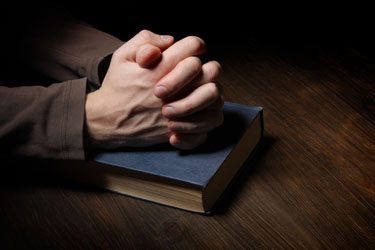Reason for Concern as Roberts Court Agrees to Hear Government Prayer Case
The next Supreme Court term could be historic in re-defining religious liberty.

With decisions in such high profile cases as challenges to the Voting Rights Act, affirmative action, and same-sex marriage still looming, the Roberts Court is showing no signs of stepping out of the culture wars. If anything, agreeing to hear a case on the constitutionality of saying prayers at the opening of a government meeting suggests the court plans to wade in deeper.
The case of Town of Greece v. Galloway is one of a handful of newly granted cases the court will hear and decide in the term that begins next October. It’s been 30 years since the Supreme Court took up the issue of government prayer, and with religious liberty challenges to the contraception mandate churning through the federal district and now appellate courts, and a growing cadre of possible challenges to Roe v. Wade following close behind, it’s clear one lasting legacy of the Roberts court will be its role in the right’s crusade to radically re-define the nature of religious liberty interests in this country.
In 1999 the town of Greece, New York, started having local clergy recite prayers to start town board public meetings. These clergy members were mostly leaders of Christian congregations in the city of about 100,000. The practice continued until 2010, when two local residents challenged the prayer ritual. Americans United for Separation of Church and State, an organization that promotes the separation of church and state, brought the litigation on behalf of two community residents, Susan Galloway and Linda Stephens. They objected to the Greece Town Board’s practice of inviting clergy to open its meetings with sectarian prayers. The board does not require that the invocations be inclusive and non-sectarian. As a result, the prayers have almost always been Christian. Official records showed that between 1999 and 2010, about two-thirds of the 120 recorded invocations contained references to “Jesus Christ,” “Jesus,” “Your Son” or the “Holy Spirit.”
The town appealed, and in a unanimous May 2012 decision a three-judge panel of the U.S. Second Circuit Court of Appeals ruled against the town’s prayer policy. Judge Guido Calabresi said that “a given legislative prayer practice, viewed in its entirety, may not advance a single religious sect.” The decision emphasized that, in the situation in Greece, the overall impression of the practice was that it was dominated by Christian clergy and specific expressions of Christian beliefs, and that the town officials took no steps to try to dispel that impression.
Alliance Defending Freedom, an Arizona-based Christian non-profit group, appealed the case to the Supreme Court, and 49 mostly Republican members of Congress and 18 state attorneys general joined in to support the appeal with amicus briefs; the goal was to greatly expand the intermingling of government and religion.
Agreeing to review the decision is troubling and could be seen as a signal that the justices are preparing to make a major decision on religion in the public sphere. That signal is only amplified when you look at the other major cases raising issues of religious liberty headed for the court. What kind of pronouncement could the Roberts court be looking to make? The last time the Supreme Court looked at the issue of government-sponsored prayer was in 1983, in Marsh v. Chambers. In that case, the Supreme Court upheld an opening prayer tradition at the Nebraska state legislature. But it did so not by ruling on the constitutionality of the prayer tradition per se, but by relying solely on the tradition of legislative opening prayers that Congress had followed since this nation’s founding. That has left unclear the level of constitutional standards to be applied when judging these kinds of prayer exercises, a point pushed by conservatives when urging the court to take up the case who noted lower courts have applied seemingly different standards when determining whether or not a particular prayer practice violates the Establishment Clause. It could be the Roberts Court views this case as an opportunity to rule on that scrutiny in a way that offers broad protection for government prayer under the guise of “tradition,” an opportunity likely too good for the conservative wing to pass up.
Since 1983, the court has decided only two cases involving prayer as an issue in church-state boundaries, and both of those cases invalidated prayers that appeared to be sponsored by public school officials, at graduation ceremonies in a 1992 decision, and at a school football game in 2000. But that was a different court, one without a chief justice who was groomed in the culture wars by Ed Meese, and without even the vitriolic and devoutly Catholic Antonin Scalia and Samuel Alito. There’s no reason to think, on the issue of government prayer, that precedent matters here any more than it did to these justices when they wrote the Citizens United decision.
